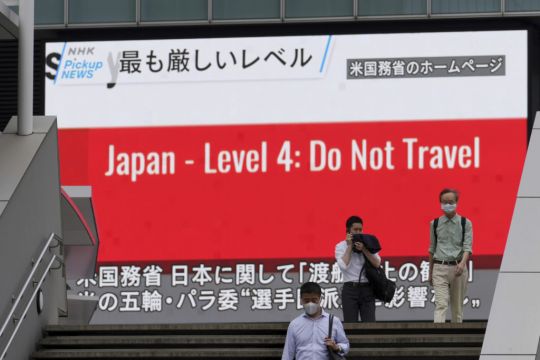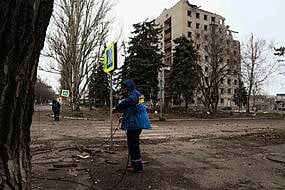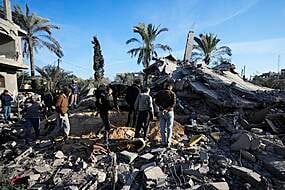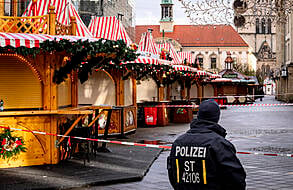Japan is set to extend a coronavirus state of emergency in Tokyo and other areas with infections not yet slowing to levels at which it can safely host the Olympics opening in just over 50 days.
The extension is needed as people are increasingly roaming in public, especially in Tokyo and Osaka, when they should be doing the opposite, and it is feared that lifting the emergency would cause an instant rebound in infections, economy revitalisation minister Yasutoshi Nishimura said.
The current emergency in the capital and eight other metropolitan areas was due to end next Monday, but hospitals in some areas are still overflowing with Covid-19 patients and serious cases have hit new highs recently.
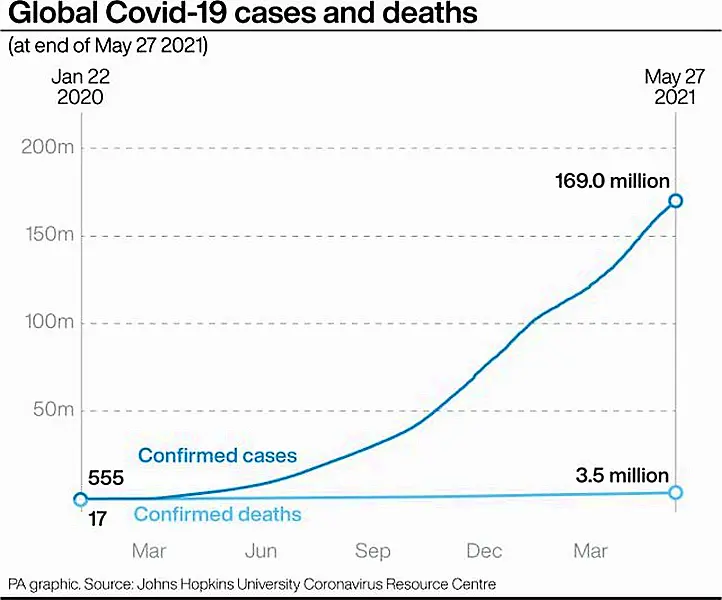
Mr Nishimura told reporters the government proposal of a 20-day extension to June 20 in the nine areas received preliminary approval from experts ahead of an official announcement later on Friday.
The southern island prefecture of Okinawa is already under emergency status until June 20.
Olympic organisers have to decide around that date whether to allow any fans at all, after overseas spectators were banned months ago.
A plan to prioritise vaccinations for Japanese athletes is also being delayed to around that time, according to media reports.
The president of the organising committee hinted on Friday that even local fans may be barred from venues.
“We would like to make a decision as soon as possible (on fans), but after the state of emergency is lifted we will assess,” Seiko Hashimoto said.
“There are many people who are saying that for the Olympic Games we have to run without spectators, although other sports are accepting spectators,” she added. “So we need to keep that in mind. We need to avoid that the local medical services are affected. We need to take those things into consideration before agreeing on the spectator count.”

The Olympics are scheduled to start on July 23 after a one-year postponement due to the pandemic, and worries about the new variants and Japan’s slow vaccination rollouts have triggered calls from the public and medical experts to cancel the Games.
Experts have warned that more contagious variants are infecting more people, leaving them seriously ill and flooding hospitals.
Meanwhile, Japan has lagged on vaccinations due to bureaucratic and planning missteps and shortages.
Only 2.3% of the population has been fully vaccinated, and the current phase targeting older adults is not scheduled to finish before the Games.
Prime Minister Yoshihide Suga and his government are determined to host the Olympics.
The International Olympic Committee has also said the Olympics would go ahead even if the host city Tokyo is under emergency measures.
Japan has reported about 730,000 cases of infection and more than 12,700 deaths.
